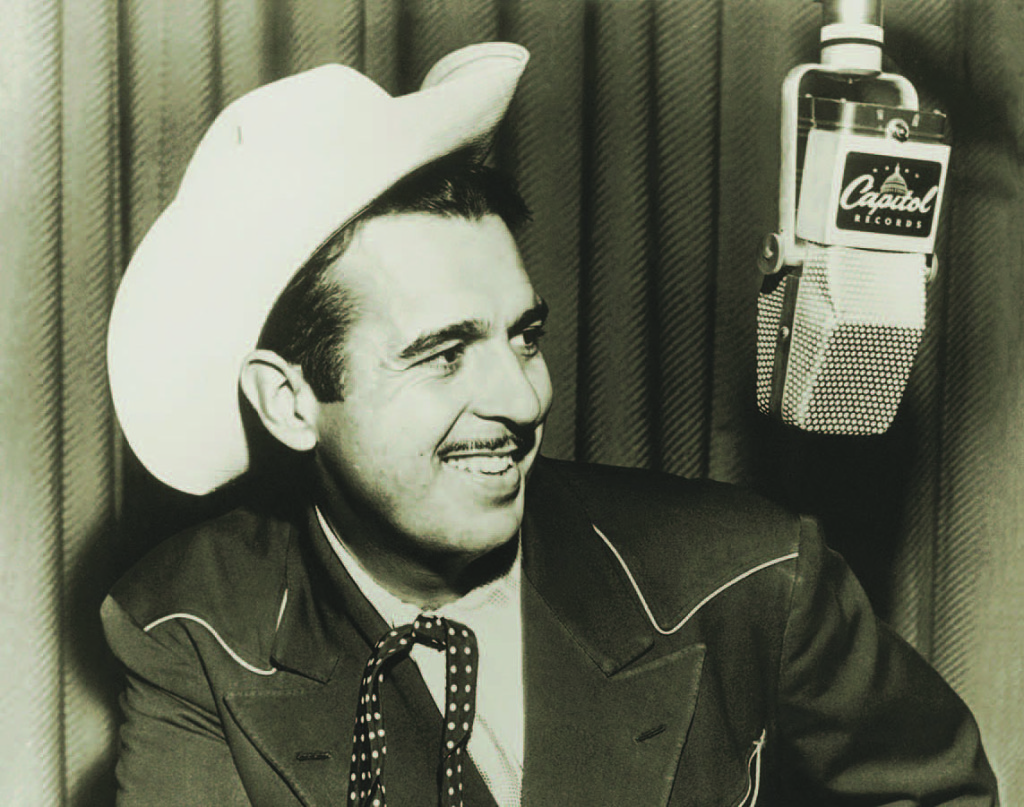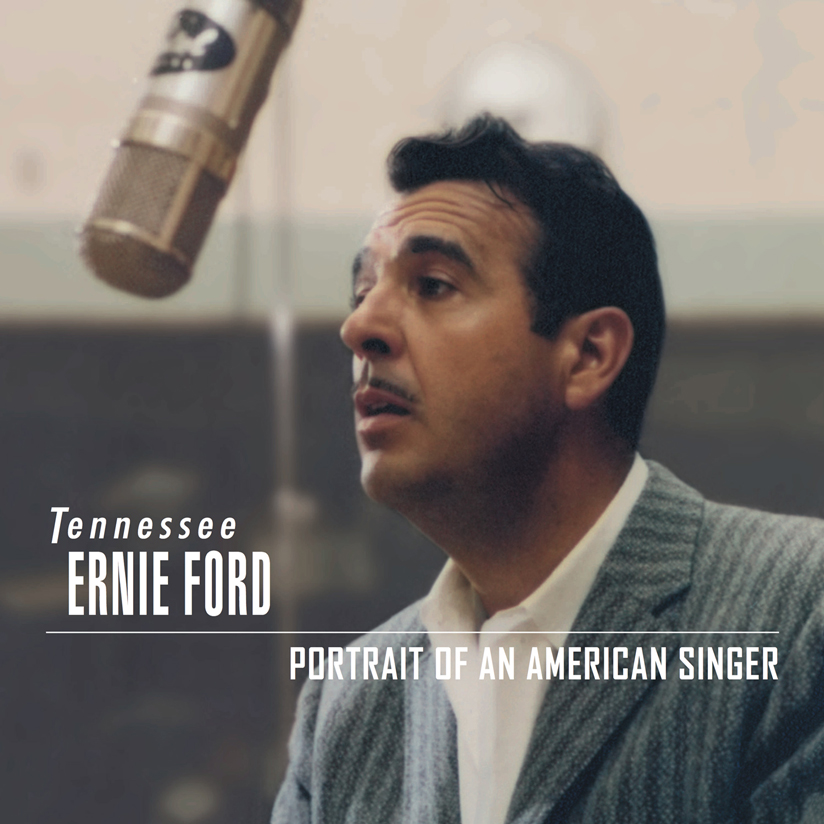
A new compendium makes the case for why the crossover artist should be remembered as one of the greats.
Brawny and smooth, mellow and fluid, Tennessee Ernie Ford’s uniquely versatile voice made any song his own. He refused to be constrained by genre labels and was a crossover star of country, pop, and gospel. Ford was honored with three stars on the Hollywood Walk of Fame for his accomplishments in radio, television, and records, was inducted into the Country Music Hall of Fame in 1990, and received the Presidential Medal of Freedom in 1984.
And yet today, he is largely forgotten, perhaps because he was so hard to define. Tennessee Ernie Ford: Portrait of an American Singer (1949 – 1960), a new collection of 154 tracks on five CDs and an accompanying 124-page hardcover book, makes an excellent case for why he should be remembered today.

The book is a series of biographical stories and essays by author Ted Olson interspersed with dozens of photos, scans of promotional flyers, album art, and exhaustive notes on every single song in the collection. One chapter, “Accidental Success: ‘Sixteen Tons,’ ” tells how the cover of Merle Travis’ 1946 labor lament started off as almost an afterthought and went on to dominate the charts and become Ford’s signature song. One interesting note: The memorable finger snaps were how Ford indicated the tempo to the orchestra leader — during rehearsals, that is. In an interview, Ford recalls that producer Lee Gillette screamed by telephone from the control room for Ford to leave the snaps in during waxing. The unusual clarinet-led arrangement further made it an unlikely country and pop hit. And the song was an interesting choice for the right-leaning Ford to record, what with its lyric about the greed of the company and the desperation of the pre-union worker entangled in debt bondage.
The five CDs gather every single secular recording, along with a few spirituals and religious songs, from the first 12 years of Ford’s career. They show his impressive range, from a fun swinging duet of “Hey Good Looking” with Helen O’Connell to the proto-rock-and-roll “hillbilly boogie” of “The Shotgun Boogie” to food-themed novelties such as “The Watermelon Man” to Christmas tunes. The CD collection on its own is indeed a portrait of Ford and a testament to his immense talent, but crack open the beautifully bound book to see the old album jackets and photos and read the stories behind the songs if you want the complete picture.
From the November/December 2015 issue.














